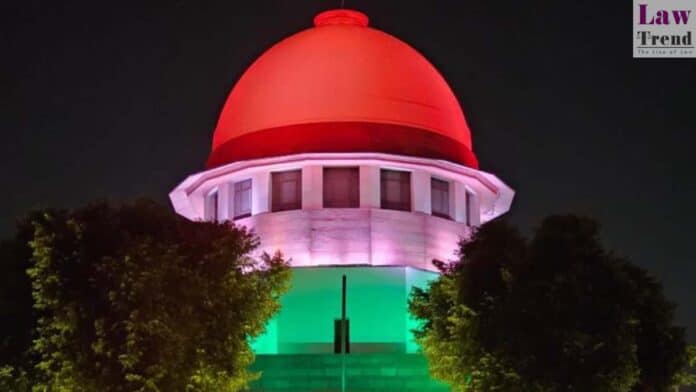Closure of an industry, without specifying the violation in “clearer terms”, affects the investment made in the company, the Supreme Court said on Thursday while hearing Vedanta group firm Sterlite Copper’s plea against shutting down of its smelting plant in Tamil Nadu’s Thoothukudi.
While making it clear that a company has to comply with the existing laws and environmental norms, a bench headed by Chief Justice D Y Chandrachud said authorities have to specify the violations for closing down an industry.
Senior advocate C S Vaidyanathan, appearing for Tamil Nadu, clarified that the state has not closed down the copper plant but only denied it the consent to operate over environmental concerns.

“A company cannot say that it will only comply with those provisions which are pointed out by the authorities. It has to comply with the Water (Prevention and Control of Pollution) Act or whatever law applicable. But when you close down an industry, you cannot say you violated unspecified grounds,” said the bench, also comprising Justices J B Pardiwala and Manoj Misra.
“You must specify what the violation is. Violation has to be stated in clearer terms if you are closing an industry down because it affects the investment made in the company,” it said.
The plant has been closed since May 2018 after 13 people were killed as police opened fire to quell a protest over alleged pollution caused by it.
During the hearing, when Vaidyanathan said the state had only denied the consent to operate, the bench observed it was not a case of renewal of some mining lease but renewal of licence to operate an existing industry.
“So, ordinarily, there is a legitimate expectation of renewal subject to compliance with law,” the court said.
When Vaidyanathan said the company had violated several norms, the bench asked him what were the authorities doing and why no action was taken if it was a polluting plant.
The senior counsel responded that the company was operating the plant after securing relief from courts and tribunals.
“The problem in this country is not absence of law but implementation of law. The pollution control boards do not have required staff and they lack motivation,” the CJI said.
The bench also asked the state about dumping of copper slag and whether they were still to be disposed of.
Vaidyanathan said, “Yes, even today, at 11 sites”.
“Are you not precipitating this? They (plant) are closed since 2018. Now, we are pointing a finger towards you. Why have you not removed this? You said that due to moisture in these dumping sites the groundwater gets contaminated. Now, for five years, leaching is taking place from these 11 sites. Does the state not have a responsibility to remove them,” the bench asked.
Leaching removes vital nutrients from the soil, causing potential deficiencies in crops.
Vaidyanathan said he has understood the court’s intention and that the state will give the firm one last chance to remove the slag. In case they don’t, the government will remove it and recover the cost from the company, he said.
“But for the past five years what you were doing? Now, you will again take samples from there and show presence of arsenic, mercury and say there is pollution,” the bench said.
The CJI told senior advocate Shyam Divan, appearing for Vedanta, that the court was concerned about the indiscriminate dumping at those 11 sites and the company will have to explain this.
Divan said these sites were used as landfills.
“No one had any complaints. There was a flood only once and then complaints were raised,” he said.
The arguments in the matter remained inconclusive and would continue on February 29.
While hearing arguments on Wednesday, the apex court had told Vedanta that it cannot be oblivious to the wider concerns of the local community in Thoothukudi and will have to implement the environmental safeguards suggested by the proposed expert panel before its plant can be reopened.
The top court had said on February 14 that a panel of domain experts may be set up to inspect the closed plant, suggest further compliance of green norms, and the way forward.
Also Read
The bench had told Divan that it cannot fault the high court verdict which upheld the closure and said if there is a gas leak in future the moral responsibility would lie with this court.
Divan, while suggesting the way forward, had said the court may appoint a committee of experts comprising representatives of the ministry of environment, forests and climate change (MoEF&CC), National Environmental Engineering Research Institute (NEERI), Central Pollution Control Board (CPCB), IIT, Tamil Nadu Pollution Control Board (TNPCB), Vedanta and three independent experts.
At least 13 people were killed and many injured on May 22, 2018, when police opened fire on a huge crowd of people protesting against pollution allegedly caused by the copper smelting unit and its proposed expansion.
Subsequently, the Tamil Nadu government and the TNPCB ordered closure of the mining group’s plant over pollution concerns.
The top court had in May last year asked the Tamil Nadu government to take appropriate decisions in pursuance of its April 10 direction by which it had allowed the Vedanta group to carry out the upkeep of the unit under the supervision of a local-level monitoring committee.







